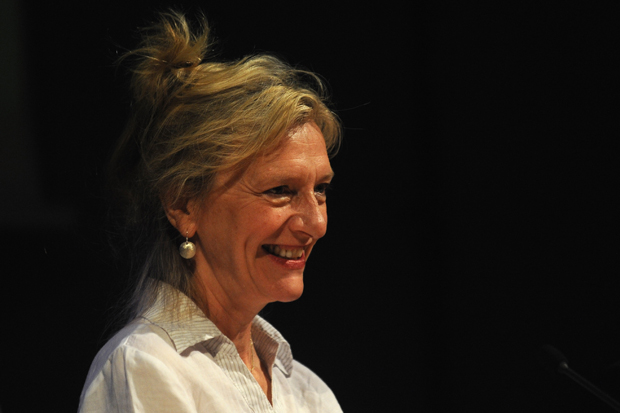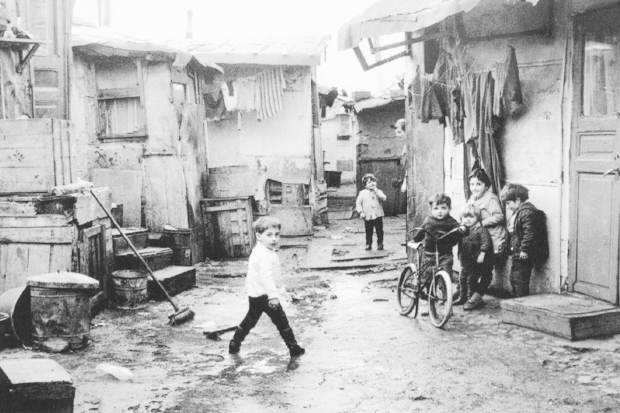For a child, the idea of ‘knowing’ your mother doesn’t compute; she’s merely there. As an adult, there may be the curiosity — who is this person who gave me birth and brought me up? — but also some kind of resignation: you’ll simply never know. Better, even, not to know. So long as she’s alive. Once she’s dead, you will regret it everlastingly; but you also know it could not have been otherwise. It’s a handy argument.
Five days in a Manhattan hospital, as a grown woman with children of your own — now you are a mother, too — with your mother sitting across from you, may thus be a gorgeous opportunity, something to savour when everything else about you is shaky. (The entire hospital stay, in a room with a night view of the Chrysler building, is nine weeks.) The principal satisfaction of Elizabeth Strout’s novella My Name is Lucy Barton — and perhaps it is only a literary satisfaction — is that it provides something far more ambiguous: this particular mother, irritable and gossipy and withholding, will not be known.
It is the first time in years that mother and daughter Lucy have seen or even really spoken to each other. The situation is so strange, and unresolved, that the book can be about nothing but these two. Lucy’s fate seems to be that of a person who cannot command another’s lasting interest. Neither her husband nor two young daughters visits much, or has anything to say — in nine weeks. Her father, who has stayed at home in Illinois, doesn’t ring up or send messages to Lucy through his wife. Even her mother, in the flesh, won’t say she loves Lucy, ask about her life, take any interest in her family or do much else but talk about unhappy couples and families from the old days whom Lucy hasn’t remembered in years. If it weren’t for Lucy’s hospital physician, visiting daily for nine weeks ‘minus one day’, there would be almost no kindness in all the book. But kindness is never what Lucy, born in excruciating poverty, has ever expected or even perhaps desired in life.
Lucy Barton is, no surprise, a writer, whose slowly emerging path to publication and a career is established in these few pages. The tale she tells of her mother’s visit to New York is decades old. At the time of writing, Lucy’s two daughters are at college; and she and her husband have remarried. Both her parents are dead. Her mother, whom she wouldn’t see again until her deathbed nine years after the hospital visit, sent Lucy away by the second evening. And that was the first time in decades that Lucy had seen her father — who soon followed. But the death of parents changes everything; ‘the world began to look different,’ Lucy reports. Even an estranged family of two parents and three children, ‘as off-kilter as we had been’, formed a unit, ‘a structure over me that I had not even known about until it ended’.
If she weren’t a writer, Lucy as narrator might not make so many arguments. She might stay with only what she sees and feels. But she has several. One that crops up often in this dreamlike patchwork, where tenderness is hard to come by, is about our human tendency to ‘find ways to feel superior to another person’, which to Lucy’s mind makes ‘the lowest part of who we are’. Without bringing herself even close to being able to acknowledge it, those guilty may include her mother.
Got something to add? Join the discussion and comment below.
Get 10 issues for just $10
Subscribe to The Spectator Australia today for the next 10 magazine issues, plus full online access, for just $10.
Available from the Spectator Bookshop, £12.99 Tel: 08430 600033
You might disagree with half of it, but you’ll enjoy reading all of it. Try your first month for free, then just $2 a week for the remainder of your first year.














Comments
Don't miss out
Join the conversation with other Spectator Australia readers. Subscribe to leave a comment.
SUBSCRIBEAlready a subscriber? Log in